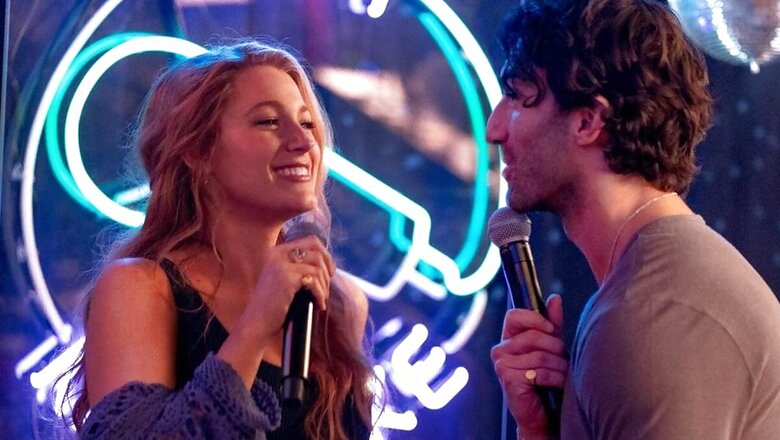
views
[Disclaimer: This review contains potential spoilers and descriptions of domestic abuse, which some readers may find triggering.]
It Ends With Us Movie Review: There’s a scene in the film where a devastated Lily (played by Blake Lively) confides in her best friend, Allysa (Jenny Slate), about a traumatic incident of domestic abuse at the hands of her husband, Ryle (Justin Baldoni). Allysa, who is also Ryle’s sister, expresses that, as a sister, she would be pleased if Lily and Ryle worked things out. However, she warns that if Lily chooses to reconcile with her abusive partner, their friendship will end. While I was moved to tears, a man’s audible sigh from the back of the theatre made it clear that the film didn’t hit as hard as it could have.
Based on Colleen Hoover’s bestselling novel, the film explores the theme of domestic abuse. Blake Lively stars as Lily, while Justin Baldoni, who also directs the film, plays her abusive partner. Brandon Sklenar joins the cast as Lily’s childhood friend, Atlas.
The film has all the right elements—a love triangle, attractive leads, and a powerful story. However, like many adaptations, It Ends With Us struggles to compress the novel’s most significant moments into a two-hour runtime. This has led to continuity issues, underdeveloped character arcs, and a diminished chemistry among the leads.
Director Justin Baldoni and screenwriter Christy Hall excel in portraying the film’s most intense scenes. The abusive moments are portrayed with such intensity that you feel as though you are a helpless observer. Particularly in the final abuse scene, I felt physically tense and breathless. The confrontation also echoed memories of Jaane Tu Ya Jaane Naa, reminiscent of the scene where Sushant slaps Aditi over Jai Singh Rathore.
However, the gaps between these powerful scenes are so abrupt that their impact diminishes. For instance, the film offers limited insight into Lily’s attraction to Atlas, Ryle’s jealousy, and Lily’s trauma, which could have significantly enhanced the story.
Blake and Justin’s chemistry takes time to develop. Although they eventually find their rhythm, the initial scenes lack the intensity expected from their roles. The writing shines during the dramatic moments, but overall, the film struggles with pacing.
Brandon Sklenar’s portrayal of Atlas feels underdeveloped. The film doesn’t delve deeply into the pivotal aspect of their friendship evolving into love, making Lily’s relationship with Atlas seem less compelling. I wish the film had included a few more scenes or extended its runtime by ten minutes to deliver a stronger emotional impact.
Despite these issues, the film’s standout feature is its cast: Blake Lively, Isabela Ferrer (who plays young Lily and closely resembles Blake’s voice), Justin Baldoni, Brandon Sklenar, and Alex Neustaedter (who plays young Atlas). Blake shines in her role, truly owning the film. Isabela provides strong support as young Lily, while Justin impresses with his portrayal of anger and vulnerability.
Brandon’s dynamic with Blake is engaging, and Alex leaves a lasting impression as young Atlas. The film also benefits from its effective use of music.
In summary, It Ends With Us is a commendable effort in addressing a sensitive topic and boasts impressive performances. However, fans of the book may need to temper their expectations, as not all beloved moments from the novel are included.
Bottom Line: It Ends With Us is worth watching for its handling of an important subject and its strong performances, even if it may be a one-time watch for some.




















Comments
0 comment